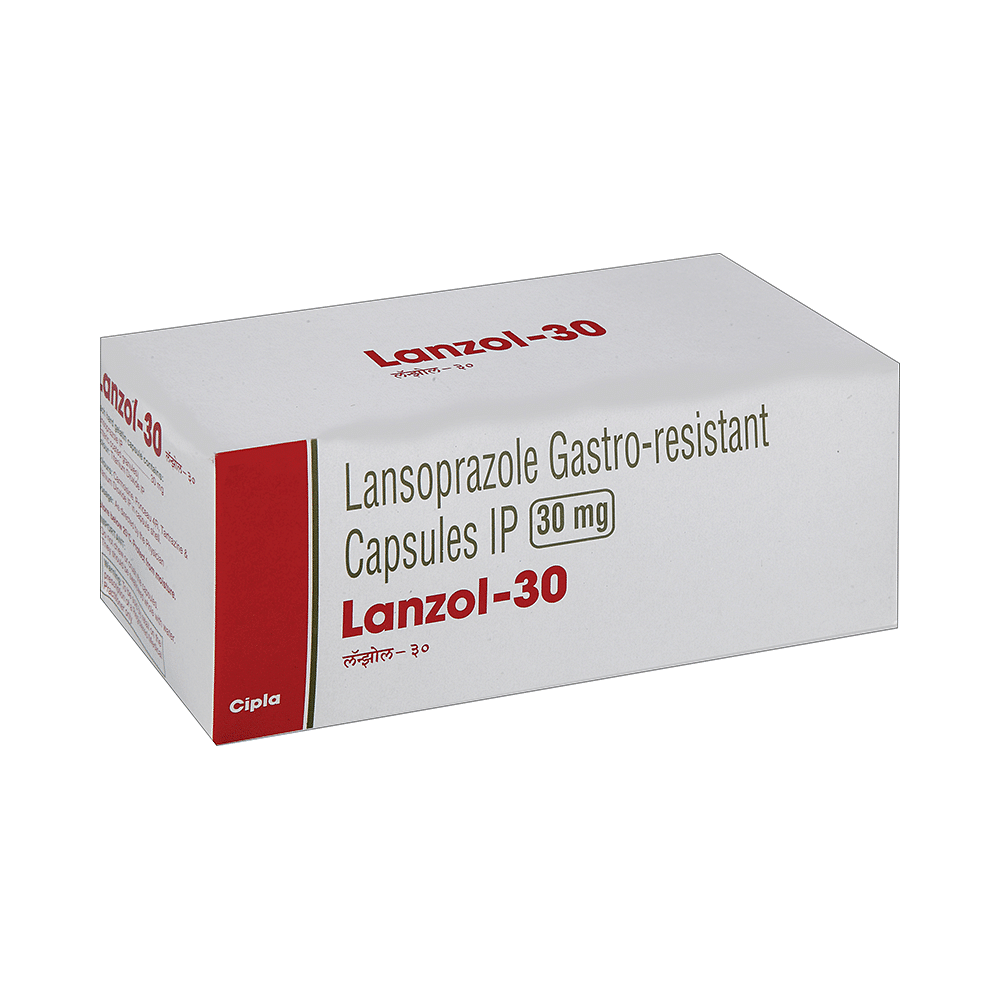
Prefasid 30mg Capsule
Manufacturer
Taj Pharma India Ltd
Salt Composition
Lansoprazole (30mg)
Key Information
Short Description
Prefasid 30mg Capsule is a medicine that reduces the amount of acid produced in your stomach. It is used for treating acid-related diseases of the stomach and intestine such as acid reflux, peptic ulcer disease, and some other stomach conditions associated with excessive acid production.
Dosage Form
Capsule
Introduction
Prefasid 30mg Capsule is a proton pump inhibitor (PPI) that works by reducing the amount of acid in the stomach which helps in relief of acid related indigestion and heartburn. It is also used to prevent stomach ulcers and acidity that may be seen with the prolonged use of painkillers. This medicine should be taken one hour before a meal, preferably in the morning. The dose will depend on your underlying condition and how you respond to the medicine. You should keep on taking it as prescribed even if your symptoms disappear quickly.
Directions for Use
Take this medicine in the dose and duration as advised by your doctor. Prefasid 30mg Capsule is to be taken empty stomach.
Safety Information
Side Effects
Nausea Headache Flatulence Diarrhea
Alcohol Warning
Caution is advised when consuming alcohol with Prefasid 30mg Capsule. Please consult your doctor.
Breastfeeding Warning
Prefasid 30mg Capsule is probably safe to use during breastfeeding. Limited human data suggests that the drug does not represent any significant risk to the baby.
Pregnancy Warning
Prefasid 30mg Capsule is generally considered safe to use during pregnancy. Animal studies have shown low or no adverse effects to the developing baby; however, there are limited human studies.
Interacting Medicines
Atazanavir Cilostazol Indinavir Nelfinavir
How it works
Prefasid 30mg Capsule is a proton pump inhibitor (PPI) that works by reducing the amount of acid in the stomach which helps in relief of acid related indigestion and heartburn.
Quick Tips
Avoid excessive intake of carbonated beverages/soft drinks Avoid citrus juices Avoid fried food Avoid caffeinated beverages like tea and coffee Avoid alcohol and smoking Avoid eating late at night or before bedtime Inform your doctor if you get watery diarrhea, fever or stomach pain that does not go away Inform your doctor if you do not feel better after taking it for 14 days Long-term use of Prefasid 30mg Capsule can cause weak bones and a deficiency of minerals such as magnesium
Related Medicines

Lanzol-30 Capsule

Culans 30mg Capsule

Lanate 30mg Capsule

Lonido 30mg Capsule

Lanzip 30mg Capsule

Lezo 30mg Capsule

Lanset 30mg Capsule

L P Zole 30mg Capsule

Mclan 30mg Capsule

Chexid 30mg Capsule
Frequently asked questions
What is the purpose and indication for Prefasid 30mg Capsule?
Prefasid 30mg Capsule is a proton pump inhibitor medication used to treat peptic ulcer disease (gastric and duodenal ulcers), reflux esophagitis, or gastroesophageal reflux disease (GERD). It is also effective in managing Zollinger Ellison syndrome (ZES), a condition associated with excessive acid production in the stomach.
How should Prefasid 30mg Capsule be administered through a nasogastric tube?
To administer Prefasid 30mg Capsule via a nasogastric (NG) tube, empty the granules from the capsule into a syringe and mix with apple juice. Attach the syringe to the NG tube and give directly into the stomach, then flush the tube with more apple juice to clear it.
How should Prefasid 30mg Capsule be taken in relation to meals?
Prefasid 30mg Capsule is usually taken once a day in the morning on an empty stomach. If taking twice daily, take one dose in the morning and another in the evening, at least one hour before a meal.
Which foods should be avoided while taking Prefasid 30mg Capsule?
To minimize symptoms, it is recommended to avoid foods that can trigger acidity and heartburn, such as fried or spicy food, butter, oil, citrus juices, caffeinated drinks like cola or tea, and alcohol.
Can Prefasid 30mg Capsule be used for children?
Yes, Prefasid 30mg Capsule is approved for use in children aged 1 to 17 years for the management of gastroesophageal reflux disease (GERD) and erosive gastritis.


